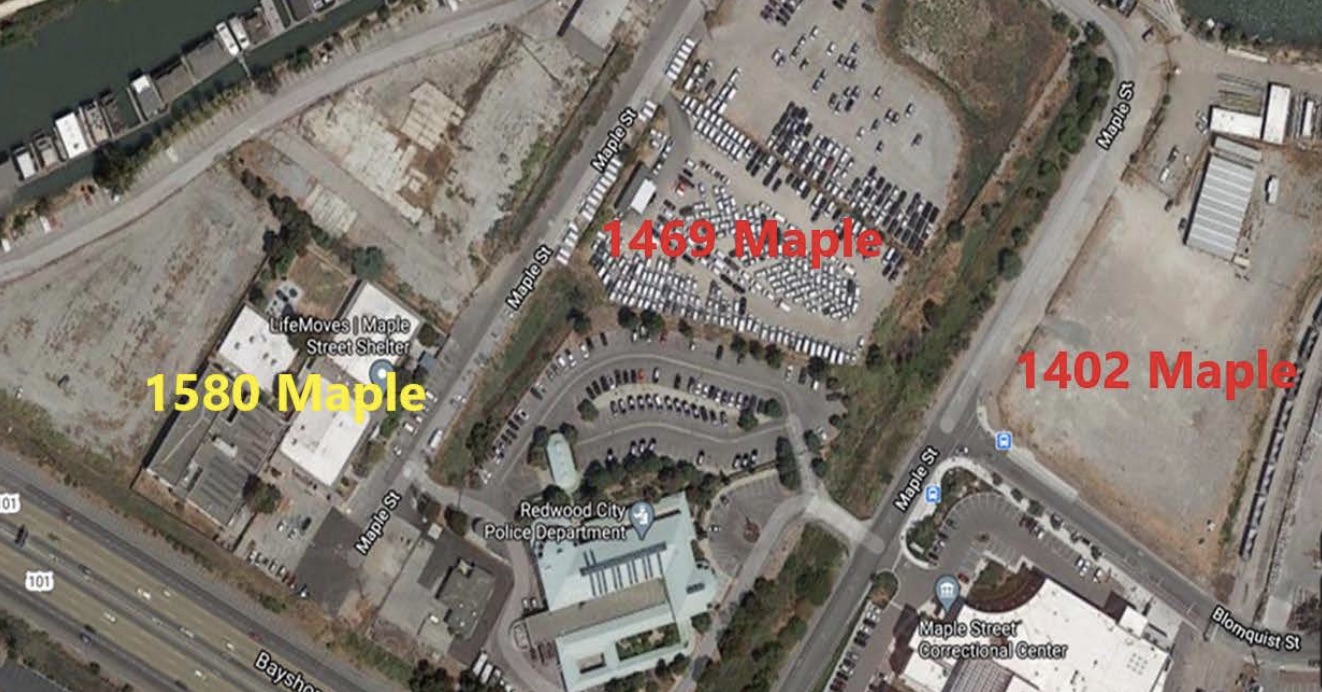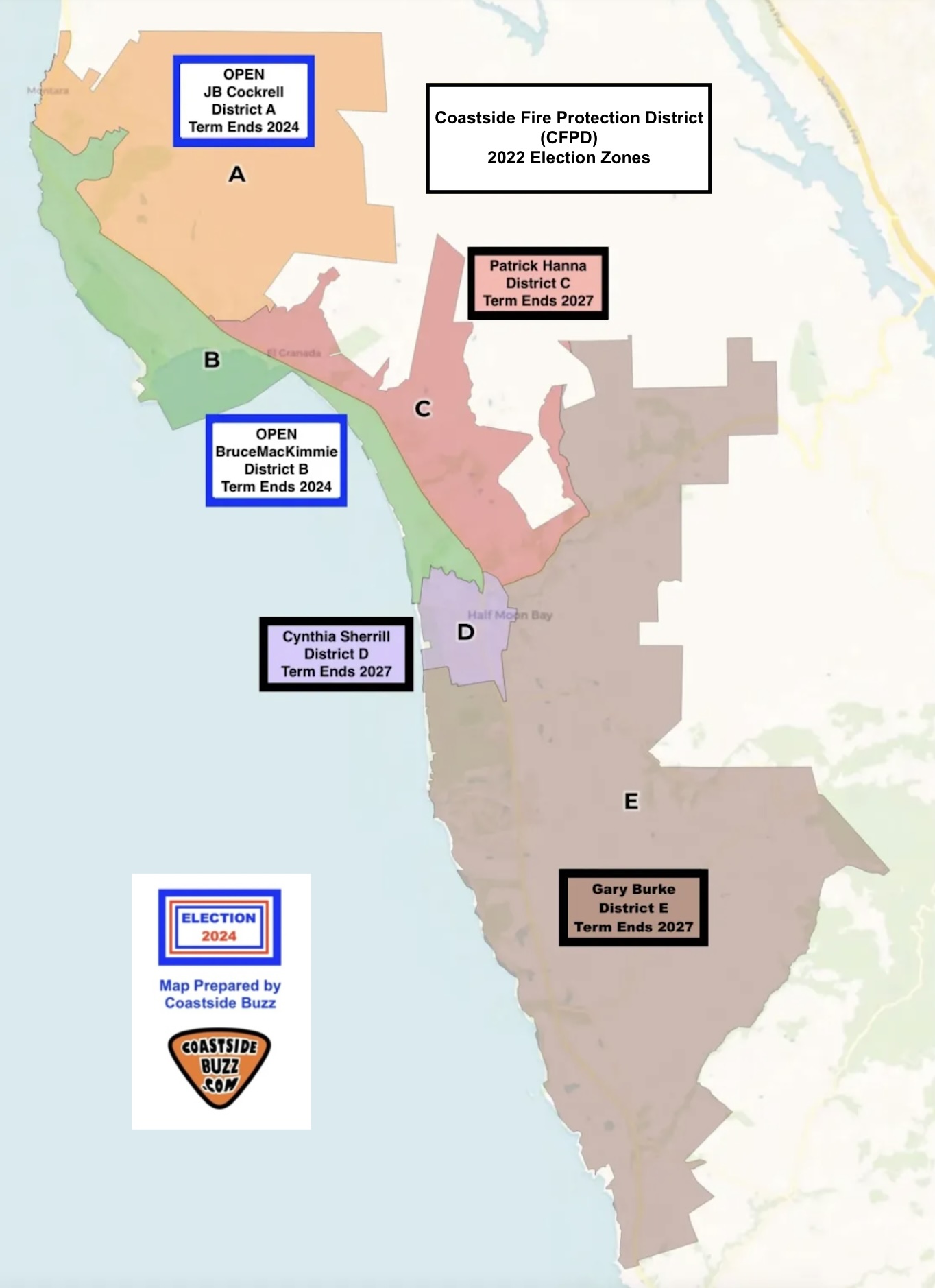|
Getting your Trinity Audio player ready...
|
PRESS RELEASE. From the San Mateo County Supervisors meeting on December 7th, 2021 at 9:00am by Zoom.
Where the Board of Supervisors accepted the donation of $5,000,000 from John Sobrato for the County Navigation Center Project.
And authorized the Director of the Project Development Unit to execute amendments to the agreement with XL Construction for, inter alia, design, pre-construction, materials procurement and construction services for the Navigation Center Project, revising the scope, extending the term, and increasing the amount payable by up to $5,000,000 to an amount not to exceed $7,085,106.
And authorizing the Director of the Project Development Unit or designee to issue additional amendments to the agreement that increase the maximum fiscal obligation by no more than 10 percent in aggregate, for a total authorized not to exceed contract value of $7,793,616.
And the Board of Supervisors voted 5-0 to adopt the resolution and approve the Appropriation Transfer Request.
Agenda for December 7th, 2021
San Mateo County Supervisors
The Navigation Center
The Navigation Center will provide a 240-bed, state-of-the-art shelter east of Highway 101 off of Maple Street. The Navigation Center will provide intensive counseling and other support services. The completed facility will include private sleeping units, shared toilet/showers, dining services, and support modules as well as outdoor areas for activities. The project objective is to rapidly develop and install a Navigation Center on a 2.5-acre undeveloped site located at 1469 Maple Street in Redwood City, California that provides a safe and dignified atmosphere that will serve the needs of the Clients and social services operators for decades. In addition, 10 acres along the nearby waterfront will be converted into future park space, waterfront recreation and open space. The County goal is to achieve functional zero homelessness, meaning that anyone who desires shelter can access it through an array of County facilities and programs. Construction will begin Spring of 2022.
Sept. 28. 2021: San Mateo County’s First Homeless Navigation Center A Step Closer

Supervisors approve land exchange with City of Redwood City
Sept. 28, 2021
Redwood City – The San Mateo County Board of Supervisors today took a major step toward fulfilling a decade-long pledge to effectively end homelessness.
The Board voted 5-0 to approve a key agreement with the City of Redwood City that will allow development of a 240-bed, state-of-the-art shelter east of Highway 101 off of Maple Street. The shelter, called a Navigation Center, will provide intensive counseling and other supportive services.
“This is an historic day in San Mateo County,” said Supervisor Warren Slocum, whose District 4 includes Redwood City. “We are one major step closer to creating 240 safe spaces for people experiencing homelessness and offer hope and dignity to get them on their way to permanent housing.”
The Board approved swapping a County-owned parcel at 1580 Maple St. for a Redwood City-owned parcel at 1469 Maple St. The deal also sets aside 10 acres along the nearby waterfront as future park space, waterfront recreation and open space.
“The County has long had a goal of ending homelessness and this land swap gives the County the ability to expand services to achieve our goal of ending homelessness,” said District 3 Supervisor Don Horsley, who has championed efforts to end homelessness.
The County plans to build the new navigation center at 1469 Maple St. while Redwood City expects to use the former County land to extend Blomquist Street. The County plans to relocate an aging and outdated existing homeless shelter on Maple Street to the newly acquired 1469 Maple St.
“By building a navigation center from the ground up, it really allows us to build a facility with services that are proven to break the cycle of homelessness,” said County Manager Mike Callagy. “A safe navigation center where individuals are treated with dignity and respect will provide people with the stability they need to transition to more permanent housing.”
The navigation center model provides short-term housing, while also offering on site a range of intensive safety-net and other housing, stability, and recovery focused case management services.
County officials say they hope to break ground on the new navigation center in 2022 and have it open by late 2022. The site would be raised to protect against sea level rise.
“The City of Redwood City has been a terrific partner through this whole planning process,” Callagy said. “We know that a common concern among many residents in San Mateo County is homelessness, and we applaud the city for taking the steps necessary to address the urgent need for a navigation center.”
While County officials have worked for a decade to end homelessness, San Mateo County continues to face an unprecedented and growing shelter crisis. Homelessness is experienced disproportionately by race and other protected characteristics.
According to the County, over 1,500 County residents were experiencing homelessness in 2019, with over 900 unsheltered. The largest number of unsheltered individuals were in Redwood City with a substantial population living in tents and on the street and facing numerous daily challenges, including exposure, high stress levels, sleep deprivation, unsanitary surroundings, lack of access to hygiene and care, and poor nutrition.
The pandemic and its associated medical social and economic impacts have worsened the housing crisis and strained existing shelter capacity. This has further imperiled those experiencing homelessness.
“A navigation center will play an important role in addressing the need for not only shelter but services,” Callagy said. “The County’s goal is to achieve functional zero homelessness, meaning that anyone who desires shelter can access it through an array of County facilities and programs. Together, we can end homelessness in San Mateo County.”
A Fresh Start for Treating Mental Illness: County Breaks Ground on New Facility with a Focus on Wellness, Recovery
PRESS RELEASE. Posted by San Mateo County Communications Michelle Durand on Apr 28th 2021.
The County of San Mateo is building a campus where adults experiencing a severe mental illness can receive care in setting that feels more residential than institutional.
This new campus will replace a concrete colossus that first housed tuberculosis patients during the Truman Administration. The design — small-scale buildings, open-air courtyards and communal spaces — reflects advances in treatment with a focus on recovery and well-being.
On April 12, 2021, advocates for the mentally ill, treatment providers and local officials celebrated the groundbreaking for the new $105 million Cordilleras Mental Health Center, located on 20 acres of unincorporated land between San Carlos and Redwood City. When it opens in 2023, it will replace the current facility that opened in 1952 as a tuberculosis hospital and transitioned to a mental health facility in the 1970s.
The new facility will include four new 16-bed mental health rehabilitation centers for 64 adults with severe mental illness and separate supported housing that includes a community kitchen and dining area for 57 adults with a lengthy history of mental illness. Once complete, the old facility will be torn down.
“Our job is to take care of the most vulnerable,” San Mateo County Supervisor Dave Pine said at the groundbreaking. “And the folks here are really the most vulnerable of the vulnerable.”
The design of the new campus includes a central courtyard with sheltered outdoor seating, a community garden and recreation courts.
Wellbeing by Design
The current building is costly to operate and its cold, blocky design “is poorly suited to current treatment practices,” according to a County staff report. A 2014 assessment found the building needed significant and expensive repairs and upgrades.
In addition, sending local residents to facilities in other counties is costly. Importantly, out-of-county placements limits the ability of local health professionals to monitor clients and makes it more challenging and costly for family members to visit.
County officials decided to start fresh. The project design reflects the following principles:
► Focus on wellness
► Promotion of respect and optimism for clients, their families and staff
► Building of community
► Healing through nature
► Striving for recovery through world-class model of care
“I think just about every one of us, through a family member of through a friend or through a friend of a friend, has been touched by mental illness,” Supervisor Carole Groom said at the groundbreaking. “Now we are going to have this incredibly fine facility … so we will know that if that family member or that friend needs help, it’s here at Cordilleras in San Mateo County.”
In addition to housing and treatment facilities, plans call for a new Campus Center that will include a chapel, medication room, art center, exercise room and volunteer center. It will also house a commercial kitchen where clients can learn culinary skills and a retail store that will sell food prepared in the kitchen and art work created by clients.
The site is largely out of the public’s view, nestled in a valley just north of Edgewood Road on Edmonds Road between Alameda de las Pulgas and Interstate 280. The design includes ample use of nature light and for views of the surrounding woods.
County Manager Mike Callagy summoned up the philosophy that guided the buildings plan for both client care and design.
“One of the hallmarks of the County is that we care. And in caring, we create that remarkable experience for others.”
Worth Noting
The new center will be California’s first net-zero carbon emissions mental health campus. Solar panels and engineering and mechanical systems, consistent with the County Municipal Green Building Policy, are expected to help the building achieve Leadership in Energy and Environmental Design (LEED) certification.
The $155 million cost is expected to be paid for through the sale of bonds.
When the original tuberculosis hospital opened in 1952, Dr. Harold D. Chope, the County director of public health, called it “probably the most modern in the state.”





